11: Straggler stories and funny background music of the early days
Brian R. Wright
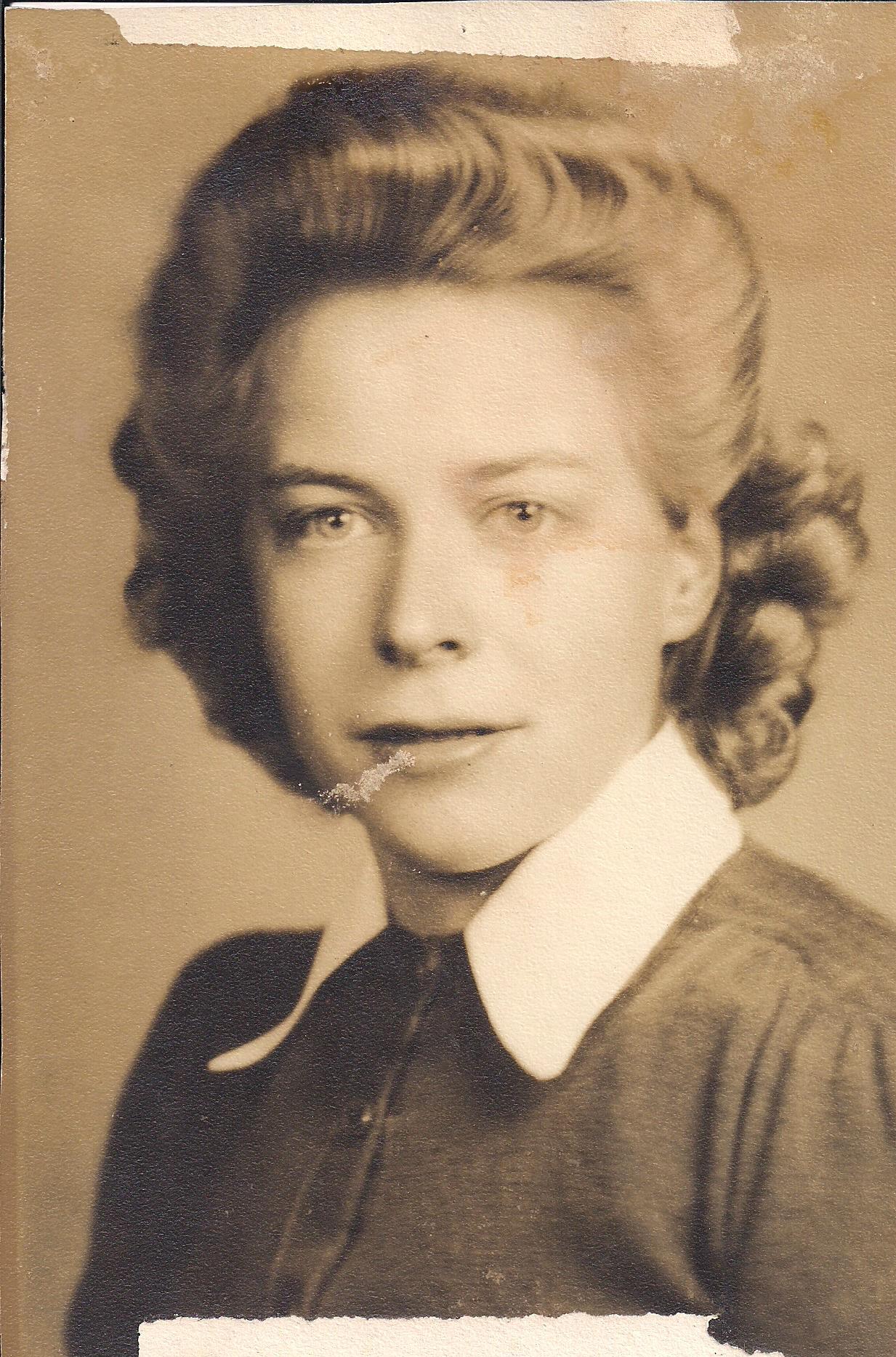 Note: These columns are a series I am making into a volume of my memoirs, working title: Volume 1 (of 3): Overland Park Ways. You may follow the links at top and bottom of page to go to preceding or succeeding episodes. The series starts here. {If the [Link to Episode <next>] at the bottom of the column does not show an active hyperlink, then the <next> column has yet to be written.}
Note: These columns are a series I am making into a volume of my memoirs, working title: Volume 1 (of 3): Overland Park Ways. You may follow the links at top and bottom of page to go to preceding or succeeding episodes. The series starts here. {If the [Link to Episode <next>] at the bottom of the column does not show an active hyperlink, then the <next> column has yet to be written.}
Okay, I’m going to trip up the readers with this starter photo. I’ll get to the next iteration of my ‘cute brother and me’ imagery shortly. But I wanted to lead with this lovely photograph of my aunt, Donna Jean Barlow, probably from the Greenville High School yearbook, senior year, which would have been ca. 1941, 42.
Why? Well, first of all it’s a stunning photo—look at that bodacious blond hair—and second, she was such an accomplished individual. Never married, but came close, as I understand the family folklore, being jilted at the altar, graduated University of Michigan Nursing School, served overseas in Army Care, then had a long distinguished career as a public health nurse. But also because I wanted to include her in the previous episode… as a single woman she tended to get left out of the family pictorials. Though she was always helping out her sisters with their broods, then her mother later in life and in the end times of grandma, who died from  the polycystic kidney disease that runs through our DNA (and did my mother in, too).
the polycystic kidney disease that runs through our DNA (and did my mother in, too).
[Donna survived my mom by a few months, as a resident of Northpointe Senior Care and then the memory unit there in Battle Creek, Michigan. She moved to Northpointe’s senior apartments when the oldest sister, my aunt June, died in December 2000. The travels and visits of all the three sisters in the 80s and the 90s, including several occasions where I’m along for the ride, are recounted in my biography of my mom: Mother’s Stone. I miss you deeply, too, dear aunt. Dear aunts. Dear Mama Bear.]
But the point of this chapter is to take another fast sweep of my young life, picking up a lot of key vignettes that flesh out the big picture, then coloring in some background commentary representing the goldfish bowl we WASP (White Anglo Saxon Protestant) Americans tended to be swimming in—the good and the not so good aspects.
All right, here’s the alpha picture 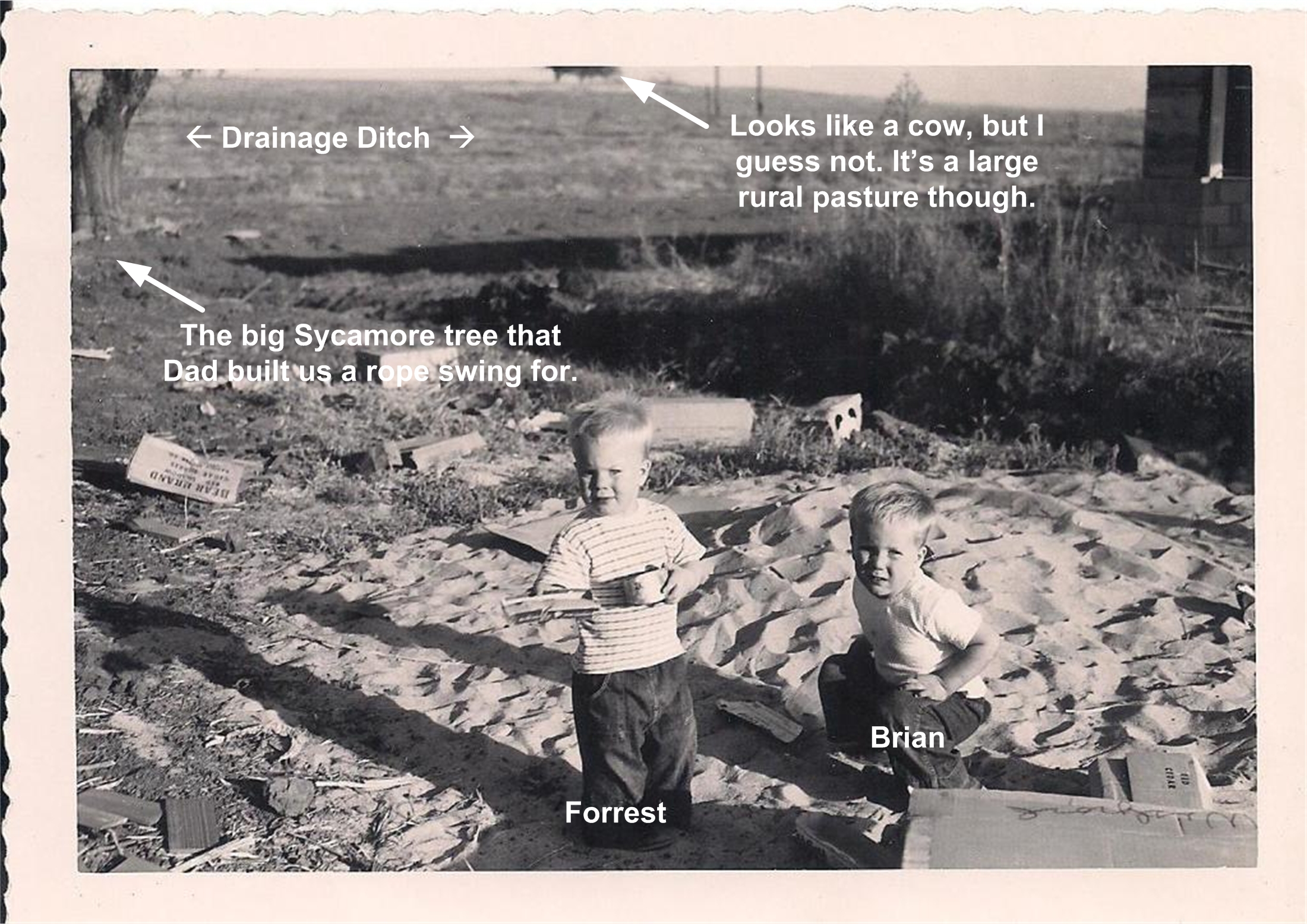 of the first Overland Park era of my life, roughly age 3 to age 14. Note the presence of my dear brother once again, to remind the reader that before my government education dragnet, he and I were constant companions, pals of the highest order.
of the first Overland Park era of my life, roughly age 3 to age 14. Note the presence of my dear brother once again, to remind the reader that before my government education dragnet, he and I were constant companions, pals of the highest order.
Note: I’m not cropping this photo; it shows us at the outset of our homestead that Dad was half-building, cert-ainly closely supervising, in Overland Park. You get an idea of just how rural the surroundings are before the big development surge in the later 1950s.
I’ve railed on this before and I shall rail on it again, but here only to comment. I’ll be five years old the next year after the above picture is taken. Then, as my brother and I are dragged off and segregated by age in the factory schools our natural close relationship, which entails immense discovery and sharing, is wholly disrupted, broken even. Does he know how I’m spending my days in the school-cage, do I know how he’s spending his days in the school-cage? No sir. By the time we hit puberty, there will have been a subtle transformation in how we see the world: toward compliance with a central-state authority structure who tells us what to believe and even who we are. Aldous Huxley says it well:
“And it seems to me perfectly in the cards that there will be within the next generation or so a pharmacological [e.g. the dangerous drug of forced schooling] method of making people love their servitude, and producing … a kind of painless concentration camp for entire societies, so that people will in fact have their liberties taken away from them but will rather enjoy it, because they will be distracted from any desire to rebel by propaganda, brainwashing, or brainwashing enhanced by pharmacological methods.” (1959)
And I could easily go on, but I just hit myself on the head to stop the sermonizing. The important part of our, my brother’s and mine, young lives occurred outside these confines of would-be fodder manufacturers.
Key Remembrances of Life in the Family
These are lighter, thank goodness, and I want especially to get them ‘on paper’ while they lie more vividly in memory.
The Church Picnic KoolAid Incident
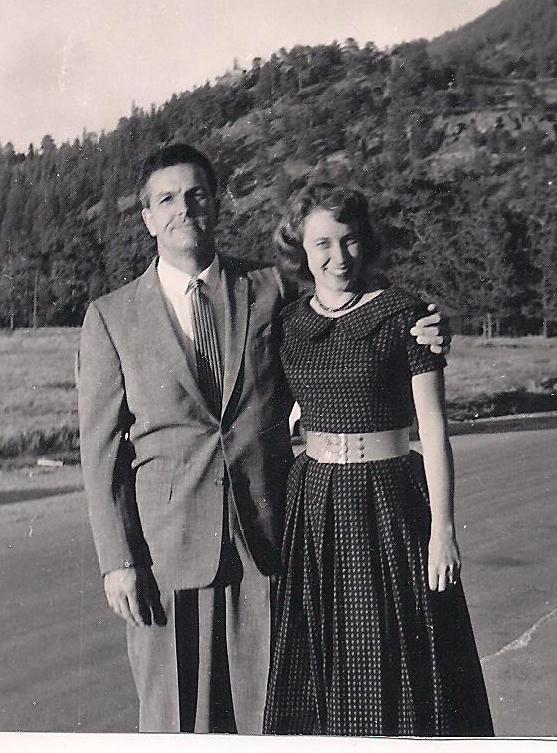 As stated previously, Mom and Dad were active in the Overland Park Lutheran Church. The photo at right is from their attendance at a special Lutheran getaway in Colorado intended to build cadre among the parents who volunteered to help with teen-agers—I think they called it the Luther League. They are a very happy couple in this picture, and seeing them this way brings back some of my best childhood memories.
As stated previously, Mom and Dad were active in the Overland Park Lutheran Church. The photo at right is from their attendance at a special Lutheran getaway in Colorado intended to build cadre among the parents who volunteered to help with teen-agers—I think they called it the Luther League. They are a very happy couple in this picture, and seeing them this way brings back some of my best childhood memories.
So they took part in organizing or helping with various church-sponsored activities, such as the summer picnic. [Mom tells the story much better, and she remembered it strikingly all the way thru her end times.] On the year in question, the responsibility for kiddie beverages fell to my dad, who thought it would be a good idea to make up a big batch of KoolAid a few days ahead of time and store it downstairs in our basement.
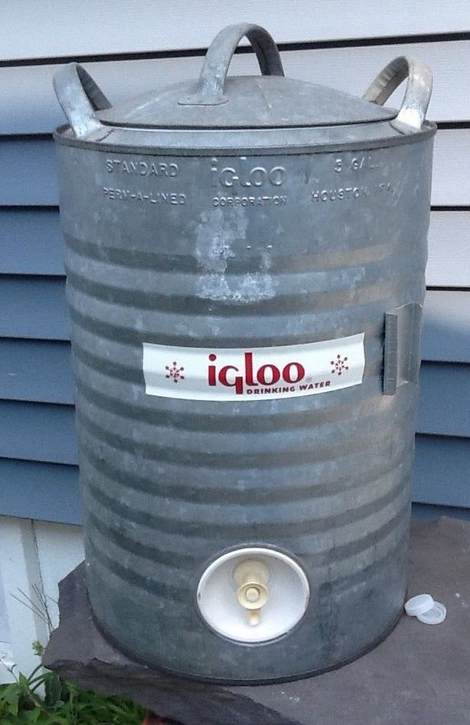 The picnic came, it was hot that day in Overland Park, Kansas (OPK), the typical regalia all about, lawn games for the kids, then lunch with hot dogs, chips, cookies. The KoolAid was a major player for quenching thirsts young and older, for play and dining. Something wasn’t right though, as adults and kids, both, started acting, well, on the goofy side. Laughing at the non-humorous, husbands and wives acting more amorous than what would be publicly normal, adults lining up with large cups for KoolAid seconds, kids, too, except some of the smaller ones started feeling sick to their stomachs.
The picnic came, it was hot that day in Overland Park, Kansas (OPK), the typical regalia all about, lawn games for the kids, then lunch with hot dogs, chips, cookies. The KoolAid was a major player for quenching thirsts young and older, for play and dining. Something wasn’t right though, as adults and kids, both, started acting, well, on the goofy side. Laughing at the non-humorous, husbands and wives acting more amorous than what would be publicly normal, adults lining up with large cups for KoolAid seconds, kids, too, except some of the smaller ones started feeling sick to their stomachs.
Whoops!
Turns out where ol’ Pop stored the sweetened liquid was visited by yeast spores of some sort, leaving their waste products of CO2, which vented off, and a detectable amount of good ol’ ethyl alcohol (C2H6O). Leaving many tipsy. I wish Mom were still around to flesh out the largely-comical details, but the upshot was that THAT was the last time Dad was asked to have any significant organizational role in the church’s summer festivities.
Fireworks on the Verandah
Again, I’m about 10 or 11 in these days. We had a very nice back yard. I believe it was Independence Day, July 4th, and the folks had invited their main family friends, Jim and Jean Clark and Bob and Virginia Love—the three couples played bridge together regularly and otherwise hung out for good times, ‘social drinking’ playing a major role, particularly for the men. So the Clarks’ and Loves’ kids are over, as well, and we’re playing on the south side of the house where the garden used to be.[1]
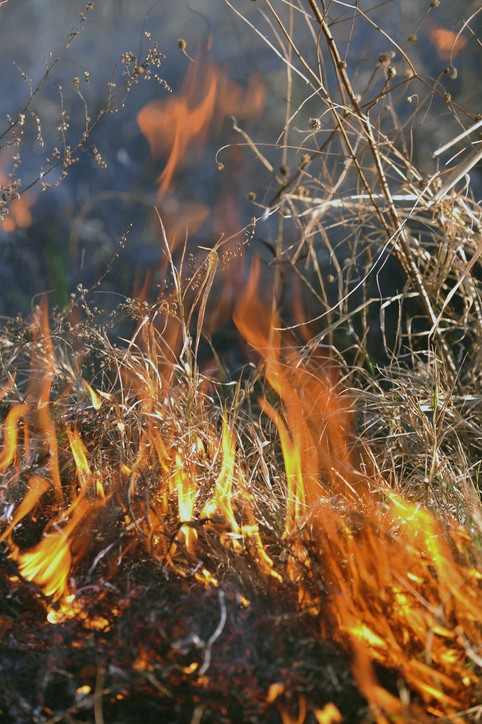 In those days, there weren’t any restrictions on burning leaves on one’s lawn… or on regular civilians buying fireworks. Come to think of it, I doubt the roadside breathalyzer had been invented yet, so there weren’t any practical restrictions on blood alcohol levels either. Dad was a member of the Air Force reserve, and it seems Bob Love and Jim Clark were in his unit… and they’re drinking buddies. Nice day, still young and vibrant couples, getting loose. There was a creek behind the yard, then open field. Dry, too, haven for gazillions of Kansas grasshoppers.
In those days, there weren’t any restrictions on burning leaves on one’s lawn… or on regular civilians buying fireworks. Come to think of it, I doubt the roadside breathalyzer had been invented yet, so there weren’t any practical restrictions on blood alcohol levels either. Dad was a member of the Air Force reserve, and it seems Bob Love and Jim Clark were in his unit… and they’re drinking buddies. Nice day, still young and vibrant couples, getting loose. There was a creek behind the yard, then open field. Dry, too, haven for gazillions of Kansas grasshoppers.
Probably it was Dad’s big idea to light a whole string of firecrackers, then one after another to throw them off onto the back 40. Next thing you know, whoosh. The back 40 has caught fire, not just a small, manageable patch, mind you, it was large, in living technicolor, reminding me of one of those ordeals Charlton Heston has to survive in Ben Hur. The problem? No way my dad and his buddies can get back there across the ditch in time to douse their handiwork.
Next sound: fire engines, two I think. We all get a first hand look at the Overland Park Fire Department‘s finest deploying from the street, then training their hoses on the pasture land. I’m sure one of the wives gets on the phone immediately, OPFD arrives in five minutes, and five minutes more they’re all done… leaving their silver bullet to the excited multitude—very impressive work. My dad and his wild and crazy guy-cohorts do their best to conceal sheepishness. Life Lesson: Even one’s highly respected father makes a bone-head move now and then.
Raging Truman
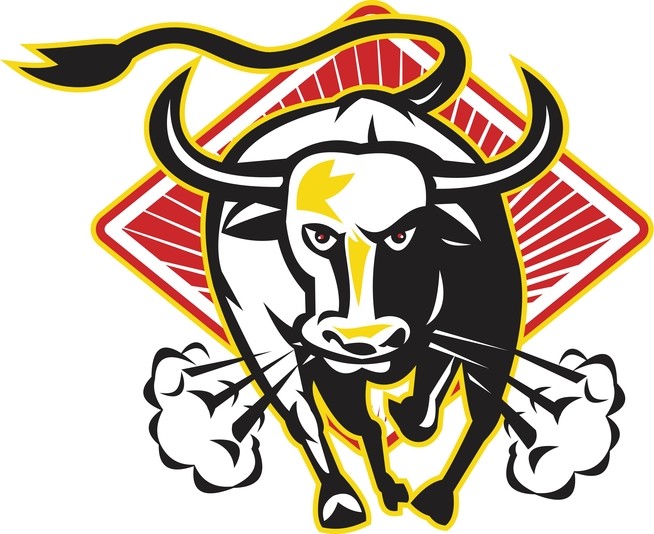 In episode 8 I mention a couple of incidents—the Cub Scout Pinewood Derby, managing the youth baseball team my brother and I played on—that reveal so many good sides of the old man’s character, which were also shared with the other boys in scouts, baseball, etc. (At my 50th HS reunion one of my Ernie’s Skelly teammates, Mike Collins, told me a story of how Dad, though strict would give a boy compli-ments for good performance; Dad made Mike’s whole week once when he went on and on about Mike’s perfect throw from the outfield!)
In episode 8 I mention a couple of incidents—the Cub Scout Pinewood Derby, managing the youth baseball team my brother and I played on—that reveal so many good sides of the old man’s character, which were also shared with the other boys in scouts, baseball, etc. (At my 50th HS reunion one of my Ernie’s Skelly teammates, Mike Collins, told me a story of how Dad, though strict would give a boy compli-ments for good performance; Dad made Mike’s whole week once when he went on and on about Mike’s perfect throw from the outfield!)
But Dad was especially protective of my brother and me: there was an incident where my brother had saved a space for me in a line at the Fairway movie theater, then when some adult tried to cut us out, Dad was there in a heartbeat reading that poor guy the riot act. Other relatively minor situations like that where he would be there to stand up for us. But the one that takes the cake, the facedown of local legend, occurred at the Overland Park Swimming Pool in the early 1960s.
Forrest and I, maybe 12 and 13, are just horsing around with these two or three high school-aged girls, they were older and bigger, and we happened to run into them, it was all friendly, we’re all laughing and having fun, some splashing one another and maybe some ineffective dunking moves on both sides. All of a sudden here comes this big old guy (their father?), who wades into me and my brother, splashing, then seriously dunking my brother a few times. The dude is saying, “There, see how you like it!” Whoa! Total psycho.
Then like Moses parting the Red Sea, here comes the old man. My father jumped in the pool on the shallow end, sent a hair-raising shout to this crazy old turd and walking 40 feet in two seconds, he reaches us and would have bowled the man over except he was backpedaling. Dad doesn’t lay a hand on him, but gestures as if to poke a hole in his chest: “YOU DON’T TOUCH MY KIDS! IF THEY’RE ACTING UP, YOU TELL THE LIFEGUARD! DO YOU UNDERSTAND?!” Dad repeated the message, to the guy’s receding face, much louder. Turd man goes into a full-panic backstroke to exit the pool.
For the 50-some people in and around the pool that afternoon, time stopped. During the 10 seconds of the actual confrontation, nobody moved, then everyone scattered in silence. I think Dad then had a domineering chat with the poor lifeguard, and we left. By the time we reached the car, Dad cooled down, and we discussed how, really, Forrest and I were just having fun, and so were the girls. To this day I carry the image of my unstoppable force of a a father standing up for what’s right, for the little guy, for me. I never felt prouder to be his son, but he WAS kind of scary, too.
Other Potpourri
Recognizing that what I’m ultimately leading to in these columns is an autobiography .AND. that I do not want to bury the reader in my own personal “10,000 things,” I’m going to broadbrush some of the other key formative events on this fourteen-year sweep. Here’s a partial list:
- Babysitters Kenna and Linda—Let’s just say, via some boyish rough-housing, they each provided an inadvertent, or more likely vertent, glimpse of intimate apparel that moved my sexual awakening further down the road.
- The grade-school girlfriend breakup—In junior high, we had ‘sock hops’ (dances), and pretty girls composed a much larger universe; at the second one, I decided to leave my grade school ‘girlfriend’ of two years, incredibly tactlessly, and eventually wound up going steady with another. I felt guilty for a while.
- In eighth grade we moved to a new neighborhood that put me in a new junior high school, found a new steady, but of course, in those days, we only kissed a lot, and I do remember a ribald game of spin-the-bottle one night in the base-ment of my steady’s friend.
- Back in those enlightened days, any teenage girl that became pregnant was a pariah of sorts; not that anyone would discuss the subject openly. I do remem-ber a girl ‘in the family way,’ who was a year or two older, and was taken out of school, just generally shunned and not spoken of. What a horrible fate. The Pill hadn’t reached down to regular society yet. The general PC opinion was (per Father Kienzle): “Sex is scary and dirty. Save it for the one you marry.”
- Speaking of sex again, I have to confess that relative to most boys my age I was an underachiever when it came to stoking the fire down below. Popular songs, like Come Softly To Me by the Fleetwoods or Pat Boone/Ricky Nelson’s latest singles, gave me the impression that the ultimate act of love was huggin’ and a-muggin’. Which I was okay with until 10th grade when, because of raging acne, being with girls romantically became academic.
- Pre-high-school, a bunch of us kids, notably one of two best childhood friends and now soon-to-be-world-famous detective novel writer (But Not for Me), Jack Kline, would gather in the communal space of backyards in his neighborhood and play sandlot football. I was a pretty good running back in that small world.[2]
- Between 8th and 9th grade, I managed to find work with OP department of public works. We worked odd jobs, cold-patching roads, shovel work, and cleanup tasks. I noticed that on a bridge foundation where there should have been concrete, it was empty space; the department head came by, said to shovel some sod around it and not say anything. Another lesson in politics.
- Our sister Tammy came along in 1959, 10+ years my junior, and I speculate a product of the so-called Rhythm Method. We were all nonetheless majorly excited to have another member on the team and I’m wondering whether the attention she received was unhealthful overstimulation. In any case, by the early 1960s our idyllic Ozzie and Harriet world was coming to an end.
 In summer of 1962, the whole family except for me was driving home from the Overland Park Pool in Dad’s company car, a Chevrolet Bel Air. It was a fateful day, as Dad was stopped to make a turn into his customary car wash, and a young male driver crested the hill south-bound on Metcalf near 79th Street going too fast; ran into the Bel Air big time. These are the days before seat belts and head rests. Major whiplash to Mom, she spent years, including long sessions at the Menninger Clinic in Topeka, recovering a sense of identity. Others just shaken up.
In summer of 1962, the whole family except for me was driving home from the Overland Park Pool in Dad’s company car, a Chevrolet Bel Air. It was a fateful day, as Dad was stopped to make a turn into his customary car wash, and a young male driver crested the hill south-bound on Metcalf near 79th Street going too fast; ran into the Bel Air big time. These are the days before seat belts and head rests. Major whiplash to Mom, she spent years, including long sessions at the Menninger Clinic in Topeka, recovering a sense of identity. Others just shaken up.
In fact, “The Crash” lay at the cusp of the impending upheaval to the family coinciding roughly with the assassination of JFK in November 1963: a corporate merger at Dad’s KVP employer led to him being transferred to Oklahoma City, Oklahoma, starting January 1964. Bermuda Triangle. Perfect Storm. Basically, the roof fell in on our whole wonderful, socially rich, Hollywood-model lives in a heartbeat. Serves as a good leadin to the next chapter, my early high-school days in the saddle of OKC.
Before I leave, most political analysts and sociologists consider that early 1960s as parti-cularly pregnant with social change. I remember folk music (Peter, Paul, and Mary[Simon and Garfunkle were my speed) and the stirrings of a eventually-to-be-government-dom-inated-in-the-guise-of-the-righteous-Left antiwar movement… as the War Machinery was licking its chops over perpetrating mass mechanized murder in the Far East, to be fol-lowed by a blank check for Pax Americana imperial global slaughter everywhere. Also, then, on a mostly positive note, the Women’s Movement was getting its first real start via Betty Friedan and The Feminine Mystique, (with Elvis, Rock ‘n’ Roll, and other sociology) touching off the Sexual Revolution—salutary at root.
Before I left OP for OKC, I was a fairly popular guy with very little interest in world affairs. [I remember in early 9th grade, a friend of mine and I were assigned to debate the topic of whether the United Nations was a good thing, which we basically regarded as self-evident. We stood up in full self-righteous laziness and flatly said, “We thought it over a lot, and we don’t think this is a debatable issue. Of course the United Nations is a good thing.” 🙂 Needless to state, our social studies teacher likewise gave us an ‘intuitively obvious’ F.] The government schools were unabashedly collectivist in orientation, with their Weekly Readers and extolled the United Nations and world socialism in general. I just fell into lockstep… BUT…
[Link to Episode 12]
[1] Over on the south side of the back yard was my mom’s wonderful flower and vegetable garden. I remember it in particular because one of her saddest days ever was when she mistakenly thought she was spraying fertilizer on her pride and joy, when in fact it was weed killer.
[2] Social activist and liberty investment guru, Catherine Austin Fitts, came up with a social health measuring tool, she called it the Popsicle Index. It was “on a scale of 1 to 5, the lack of parental concern for letting one of their grade-school-aged children walk alone a few blocks away, buy a Popsicle and come back without incident.” I grew up in a world with a Popsicle Index of 5+. We were always running about the neighborhood, where Mom only truly knew where we were when she called us in for supper.
This post has been read 2904 times!

